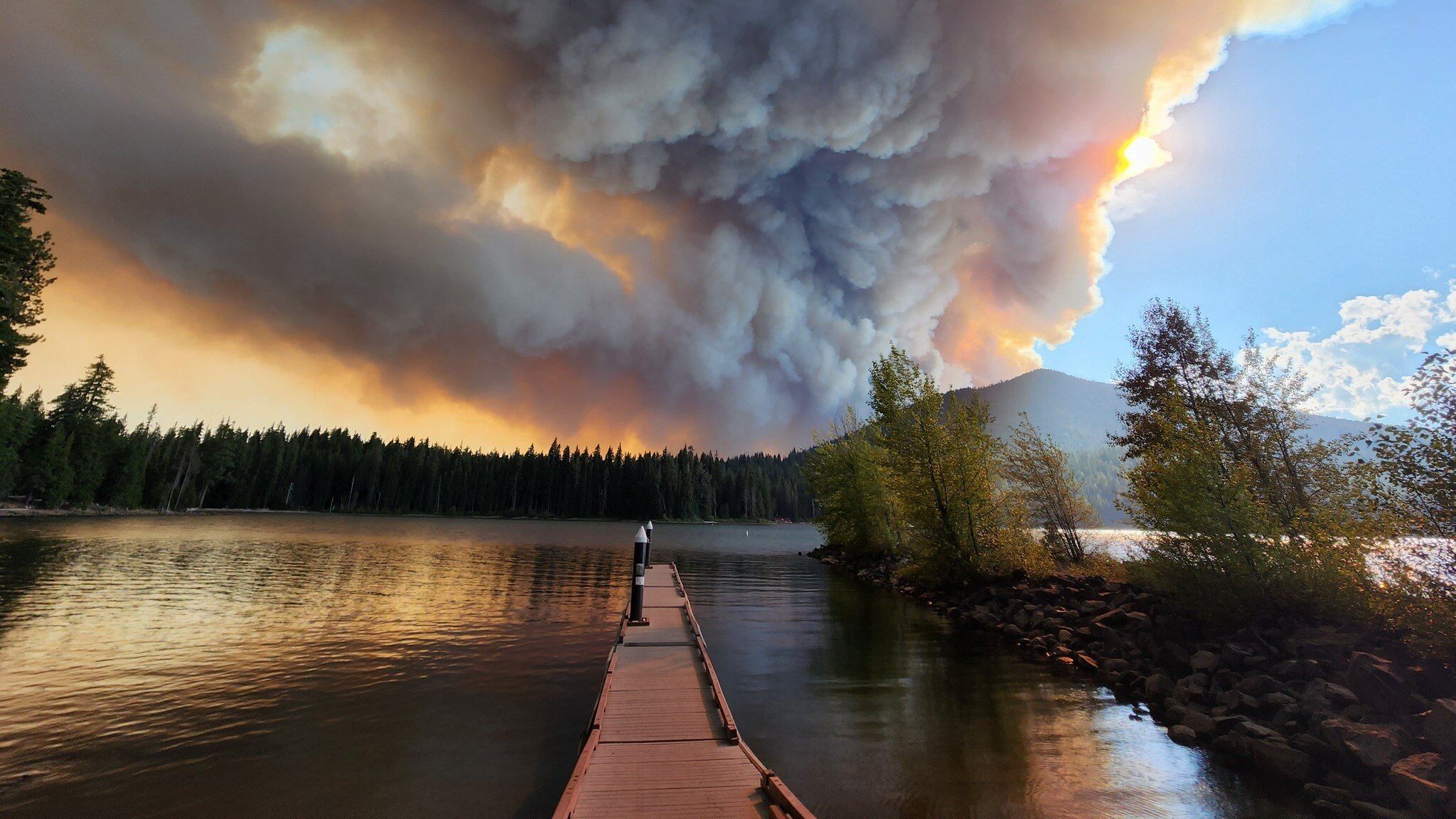Update, Saturday, Sept. 10: Portlanders awoke to an unpleasant surprise this morning. Much heavier smoke blew in from the south, turning the sky orange. This smoke is coming from the same fire that evacuated the town of Oakridge. A new story is here.
Notice a funny taste in the air today? That’s ash from burning ponderosa pines along the Snake River.
The east wind blowing into Portland today—strong enough to trigger the shutdown of power lines on exposed ridges from Corbett to the West Hills—is also carrying smoke from fires to our north and east. The largest of these is the Double Creek Fire, which has now burned more than 100,000 acres in the Wallowa-Whitman National Forest, making it Oregon’s only megafire this summer.
Far more intense smoke is flowing into the Central Willamette Valley (think Eugene) from the woods surrounding Waldo Lake in Central Oregon. That’s where the Cedar Creek Fire has intensified in the past 24 hours. On Friday afternoon, authorities told the towns of Oakridge, West Fir and High Prairie to prepare to evacuate at a moment’s notice.
Smoke from that fire can be clearly seen from space, drifting northwest like the trailings of a blown-out birthday candle.
Impressive smoke plume being produced by the #CedarCreekFire in Oregon: https://t.co/7uy6jaD0Cy; @NWSPortland
— UW-Madison CIMSS (@UWCIMSS) September 9, 2022
#ORwx pic.twitter.com/S6ZOSnpg2p
The Oregon Department of Environmental Quality warned that Portland’s air quality had rapidly deteriorated today—from “good” at 10 am to “moderate” at 2 pm—and is could worsen overnight.
“The particulates resulting in this reduced air quality are PM2.5, which are particularly hazardous to human health, so staying inside and keeping windows closed if possible is recommended,” writes National Weather Service meteorologist Jon Bumgardner. “It is uncertain what will happen with air quality across the area tonight into tomorrow, but the smoke model suggests additional smoke will filter into the region from the east due to the strong winds.”
More than 40,000 Oregonians are without power this afternoon as the state’s two largest electrical utilities try to prevent the ignition of more fires by shutting down the power grid along ridges where high winds could topple transmitters and power lines into dry brush. The Associated Press this morning reported that such a strategy is common in California but new to the Pacific Northwest.
But as the climate changes, California’s reality is quickly becoming Oregon’s, too.
